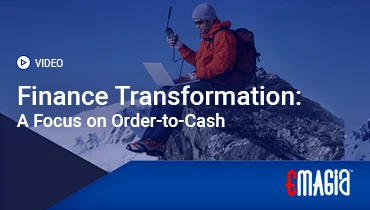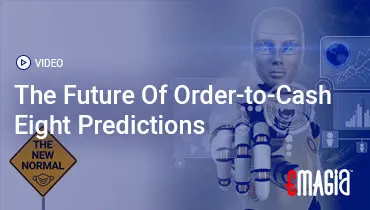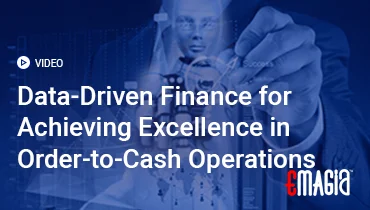Introduction: Navigating the Evolution of Business-to-Business Payments
In the dynamic world of business, efficient financial operations are paramount. For decades, B2B payments have been characterized by complex, manual processes, often involving paper checks, lengthy approval cycles, and disjointed systems. This traditional approach to managing enterprise financial transactions frequently leads to delays, errors, and significant operational overhead, hindering overall cashflow solutions and strategic growth.
However, a transformative shift is underway. The advent of Cloud-based B2B Payment Automation is revolutionizing how companies manage their payables and receivables. By moving payment processes to the cloud, businesses can achieve unprecedented levels of efficiency, security, and scalability. This article will delve into the intricacies of this advanced solution, exploring its core components, undeniable benefits, implementation considerations, and why it is rapidly becoming an indispensable tool for modern enterprises seeking to streamline their financial operations and enhance agility.
Understanding Cloud-based Payment Automation for Businesses: What Does it Entail?
At its heart, cloud-based B2B payment automation refers to leveraging internet-hosted software and services to streamline, automate, and manage the entire lifecycle of payments between businesses. This includes everything from invoice receipt and approval to payment execution and reconciliation.
Defining Cloud-based B2B Payment Automation: A Modern Approach
Unlike on-premise solutions, a cloud-based payment platform for businesses operates entirely on remote servers accessible via the internet. This eliminates the need for expensive hardware, complex installations, and constant IT maintenance. Businesses can subscribe to these services, enjoying instant access to powerful B2B payment software that facilitates automated transactions without geographical constraints. It represents a significant step towards full financial automation for B2B operations.
Key Components of a Robust Cloud-based Payment Platform for B2B
A comprehensive cloud-based payment system for businesses typically integrates several critical functionalities to offer an end-to-end solution for managing corporate payments and ensuring accurate reconciliation:
Invoice Processing Automation: Streamlining Business Billing
This component automates the capture, validation, and routing of invoices, regardless of format (e.g., paper, email, EDI). Technologies like Optical Character Recognition (OCR) and Artificial Intelligence (AI) can extract data, significantly reducing manual data entry and errors in B2B billing. This enables efficient accounts payable automation from the very first step.
Automated Approval Workflows: Expediting Payment Decisions
Cloud platforms allow businesses to set up configurable approval workflows based on predefined rules, thresholds, and departmental structures. Payments are automatically routed to the correct approvers, with reminders and audit trails, ensuring swift decisions and eliminating bottlenecks that delay supplier payment automation.
Electronic Payment Execution: Diverse B2B Payment Options
A core feature is the ability to execute payments electronically through various channels. This includes ACH (Automated Clearing House), wire transfers, virtual cards, and increasingly, real-time payments. Providing multiple B2B payment options enhances flexibility and caters to diverse supplier preferences, moving away from cumbersome check-based processes.
Reconciliation and Reporting: Ensuring Accuracy and Visibility
Automated reconciliation matches payments with corresponding invoices and purchase orders, often leveraging AI for complex matching scenarios. This dramatically reduces time spent on payment reconciliation, minimizes discrepancies, and provides real-time financial reporting for accurate B2B cashflow solutions.
ERP and System Integration: Seamless Financial Operations
The best B2B payment platform offers seamless integration with existing ERP systems (e.g., SAP, Oracle, NetSuite), accounting software, and banking systems. This ensures a consistent flow of data, eliminates silos, and maintains a single source of truth across all financial operations, including handling complex global payments EDI.
Key Insight: Cloud-based solutions for B2B payments offer a centralized, accessible, and intelligent approach to managing business transactions, moving beyond traditional manual processes to deliver significant operational improvements.
The Unparalleled Benefits of Cloud-based Solutions for Business Payments
Adopting cloud-based approaches for managing payments between businesses provides a multitude of strategic and operational advantages that empower companies to operate more efficiently, securely, and profitably.
Achieving Superior Operational Efficiency with Automated Business Payments
- Reduced Manual Effort: Automating data entry, invoice processing, and matching tasks frees up finance teams from repetitive, low-value work, allowing them to focus on strategic analysis and problem-solving. This is a hallmark of truly automated business payments.
- Faster Processing Cycles: Payments are processed and approved significantly quicker, reducing delays and improving overall operational speed. This efficiency extends throughout the entire accounts payable automation process.
- Minimized Errors: Automation drastically cuts down on human errors associated with manual data entry and reconciliation, leading to higher accuracy in payment processing.
Boosting Cash Flow and Optimizing Working Capital through B2B Automation
- Accelerated Payments: Faster processing means payments are executed promptly, improving your own company’s cash flow and allowing you to potentially capture early payment discounts from suppliers. These are critical aspects of modern cashflow solutions.
- Enhanced Liquidity: By efficiently managing outgoing payments, businesses can maintain better control over their available cash, leading to improved liquidity and working capital optimization.
- Strategic Payment Timing: Cloud platforms often allow for greater flexibility in scheduling payments, enabling businesses to manage their cash disbursements optimally. This can also tie into strategies like B2B factoring.
Enhanced Security and Fraud Prevention in Business Payment Solutions
- Robust Security Protocols: Reputable cloud-based platforms for business payment solutions employ advanced encryption, multi-factor authentication, and strict access controls to protect sensitive financial data, far exceeding the security of paper-based systems.
- Reduced Fraud Risk: Automated workflows, audit trails, and built-in anomaly detection capabilities help flag suspicious activity, significantly reducing the risk of payment fraud. This is a vital aspect of modern payment automation solutions.
- Improved Compliance: Automated systems help ensure adherence to regulatory requirements (e.g., GDPR, SOC 2, PCI DSS) by maintaining comprehensive audit trails and enforcing compliance rules.
Scalability and Flexibility: Future-Proofing Your Business Payment System
- Elastic Scalability: Cloud solutions can easily scale up or down based on transaction volume and business growth, without requiring additional IT infrastructure investments. This adaptability is key for growing B2B payment companies.
- Anytime, Anywhere Access: Teams can securely access the platform from any location with an internet connection, facilitating remote work and global operations, a key benefit of a cloud-based payment system for B2B.
- Agile Adaptability: Cloud platforms are regularly updated with new features and compliance mandates, ensuring your B2B payment software remains cutting-edge and future-proof.
Improved Supplier Relationships and Collaboration with Automated Supplier Payments
- Timely Payments: Consistent and on-time payments foster stronger relationships with suppliers, potentially leading to better terms and discounts. This is a direct result of effective supplier payment automation.
- Enhanced Transparency: Supplier portals often provide vendors with self-service access to payment statuses and invoice histories, reducing inquiries and improving communication.
- Streamlined Onboarding: Automated vendor onboarding processes simplify the collection of necessary payment information and compliance documents.
Greater Visibility and Control over Business Payments and Spend
- Real-time Insights: Centralized dashboards provide immediate visibility into payment statuses, spending patterns, and cash flow, enabling more informed decision-making.
- Comprehensive Audit Trails: Every transaction and approval is logged, creating an immutable audit trail that simplifies audits and enhances accountability.
- Customizable Reporting: Robust reporting features allow businesses to generate detailed financial reports tailored to their specific analytical needs.
Overcoming Traditional Business Payment Challenges with Cloud Solutions
Cloud-based automation for B2B payments directly addresses the common pain points that have historically plagued inter-company transaction processes.
Addressing Manual Errors and Delays in Payment Processing for B2B
Manual processes are inherently prone to human error, from incorrect data entry to misapplied payments. These errors lead to reconciliation nightmares, unapplied cash, and significant delays. Cloud-based systems minimize these risks through automated data capture, intelligent matching, and streamlined workflows, drastically improving the accuracy and speed of B2B payment processing. This ensures that modern payment solutions for businesses are reliable.
Expanding Payment Options for B2B and Reducing Transaction Costs
Many businesses are limited in their choices for outgoing payments, relying heavily on costly methods like paper checks or expensive wire transfers. Cloud platforms often integrate with a wide array of payment rails, allowing businesses to choose the most cost-effective method (e.g., ACH for lower fees) while offering flexibility to suppliers. This diversification is key to automating B2B payments cost-effectively and leveraging best B2B payment platforms.
Streamlining Complex Business Billing and Reconciliation Processes
The complexities of B2B billing often involve managing multiple invoice types, partial payments, and deductions, making manual reconciliation a time-consuming ordeal. Cloud-based solutions for payment automation and reconciliation leverage AI and advanced algorithms to automatically match payments, identify discrepancies, and flag exceptions for quick resolution, transforming what was once a cumbersome process into an efficient workflow. This helps companies looking for streamlined supplier payment solutions.
Key Considerations for Implementing Cloud-based Business Payment Automation
While the benefits are clear, a successful transition to cloud-based payment automation requires careful planning and strategic execution for your business.
Choosing the Ideal B2B Payment Platform: A Strategic Decision
Selecting the right B2B payment platform is crucial. Evaluate vendors based on their security features, integration capabilities, scalability, support for various B2B payment options, and specific features relevant to your business needs, such as B2B factoring or global payments EDI handling. Look for robust B2B payment software that offers comprehensive payment automation solutions.
Data Migration and Integration with Existing Systems
Seamless integration with your existing ERP, accounting, and banking systems is paramount to ensure data consistency and avoid silos. Plan for data migration carefully to ensure accuracy and minimize disruption during the transition to automated payments for your business operations.
Ensuring Security and Compliance in Business Payment Software
Given the sensitive nature of financial data, thoroughly vet the security protocols, certifications, and compliance adherence (e.g., PCI DSS, SOC 2) of any prospective B2B payment software. Strong fraud detection capabilities are also a must.
Change Management and Training for Automation Adoption in B2B Payments
Implementing automated payment processes is not just a technological shift but also an operational one. Provide comprehensive training for your finance and AR/AP teams and manage the change process effectively to ensure high user adoption and maximize the return on your investment in B2B automation.
Emagia: Pioneering Intelligent Cloud Solutions for Modern Enterprise Payments
Emagia is at the forefront of empowering businesses to transform their financial operations through advanced Cloud-based B2B Payment Automation. Our comprehensive B2B payment platform is designed to eliminate manual inefficiencies, accelerate cash flow, and provide unparalleled visibility across your entire payment ecosystem.
Here’s how Emagia helps businesses achieve superior financial performance:
- Intelligent Automation: Emagia’s AI-powered engine automates every step, from intelligent invoice data capture and validation to smart payment matching and reconciliation. This goes beyond basic automation, handling complex scenarios with high accuracy, minimizing manual intervention in your payment and reconciliation workflows.
- End-to-End Solutions: Our platform offers complete B2B accounts payable automation and accounts receivable automation, ensuring a seamless flow from invoice to payment to accurate posting in your ERP. We support all major B2B payment options, including ACH, wires, virtual cards, and even complex global payments EDI.
- Enhanced Cash Flow and Liquidity: By accelerating payment processing and reconciliation, Emagia directly contributes to improved B2B cashflow solutions, enabling faster access to working capital and helping you achieve optimal B2B factoring strategies where applicable.
- Superior Security and Compliance: Built with enterprise-grade security, Emagia ensures your financial data is protected with advanced encryption, robust access controls, and compliance with global financial regulations, making it one of the best B2B payment platforms for secure transactions.
- Scalability for Growth: As a cloud-native B2B payment system, Emagia scales effortlessly with your business volume, providing reliable performance whether you’re processing hundreds or hundreds of thousands of transactions, ensuring your supplier payment automation can keep pace with growth.
- Actionable Insights and Reporting: Gain real-time dashboards and customizable reports that provide deep insights into payment statuses, spending patterns, and financial health, empowering proactive decision-making and continuous optimization of your B2B payments solutions.
By partnering with Emagia, you leverage cutting-edge B2B payment software that transforms complex financial processes into efficient, strategic assets. Achieve greater control, reduce costs, and unlock the full potential of your business’s financial operations with Emagia’s leading cloud-based payment automation.
Frequently Asked Questions About Cloud-based B2B Payment Automation
What is cloud-based B2B Payment Automation?
Cloud-based B2B Payment Automation refers to using internet-hosted software to streamline and manage the entire business-to-business payment process, from invoice receipt and approval to payment execution and reconciliation. It eliminates the need for on-premise infrastructure, offering accessibility and scalability for efficient digital payment processing.
How does cloud automation improve B2B payment efficiency?
Cloud automation significantly improves B2B payment efficiency by reducing manual data entry, automating invoice processing and approvals, and enabling faster electronic payment execution. This leads to quicker processing cycles, fewer errors, and increased productivity for finance teams, enhancing overall business automation.
What are the security benefits of using a cloud-based B2B payment platform?
Cloud-based platforms for B2B payments offer enhanced security through advanced encryption, multi-factor authentication, and robust fraud detection capabilities. Reputable providers maintain high compliance standards (e.g., SOC 2), protecting sensitive financial data more effectively than traditional, manual systems and reducing overall fraud risk in these solutions.
Can cloud-based automation handle international B2B payments?
Yes, most modern cloud-based automation systems are designed to handle international B2B payments. They often support multi-currency transactions, adhere to global payment regulations, and integrate with international payment networks, simplifying complex cross-border business transactions and potentially supporting global payments EDI.
How does cloud-based automation help with B2B payment reconciliation?
Cloud-based automation greatly assists with B2B payment reconciliation by automatically matching incoming payments with invoices and purchase orders using AI and smart algorithms. This reduces manual reconciliation effort, identifies discrepancies faster, and provides real-time visibility into payment statuses, leading to more accurate financial reporting and optimized automated payment processes.
Conclusion: The Strategic Imperative of Automating Business Payments in the Cloud
The shift to Cloud-based B2B Payment Automation is no longer a luxury but a strategic imperative for businesses aiming for sustained growth and financial efficiency. The limitations of traditional, manual payment processes—from high costs and errors to slow processing and lack of visibility—are increasingly unsustainable in today’s fast-paced digital economy.
By embracing a cloud-based payment platform for businesses, organizations can unlock a myriad of benefits: accelerated cash flow, optimized working capital, enhanced security, unparalleled scalability, and stronger supplier relationships. This transformation streamlines the entire business payment lifecycle, empowering finance teams to move beyond transactional tasks towards more strategic initiatives. Investing in a robust cloud-based payment system is investing in a more resilient, agile, and profitable future for your business.



